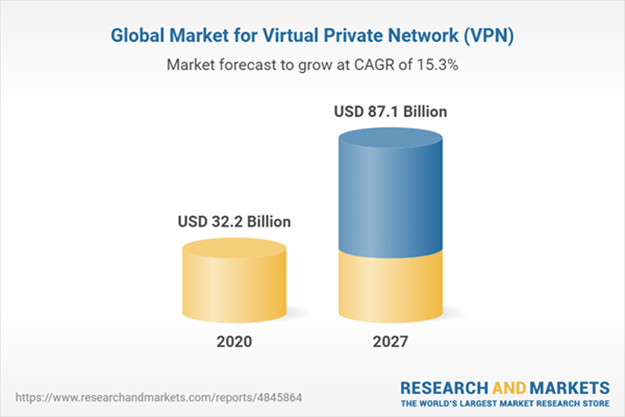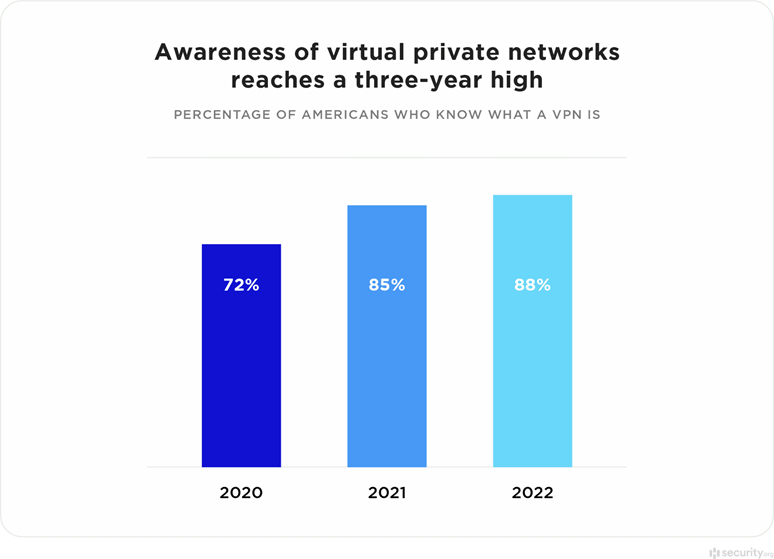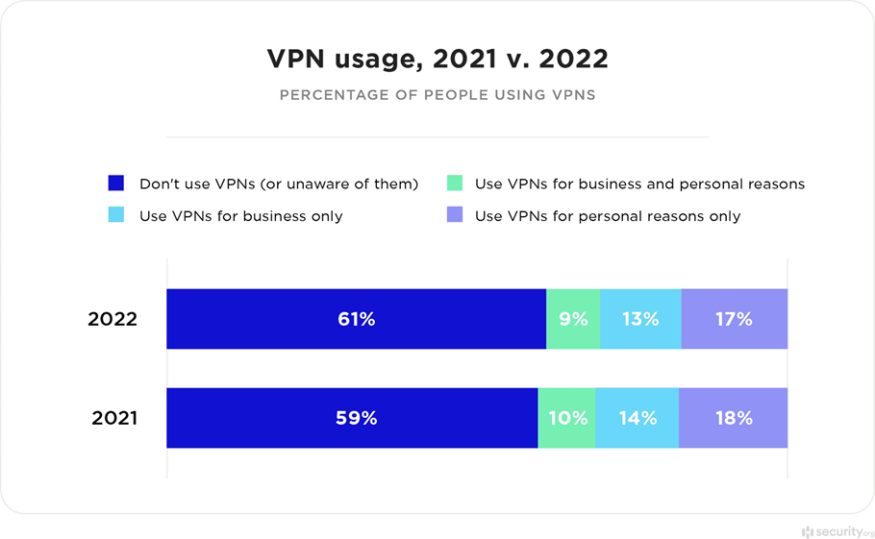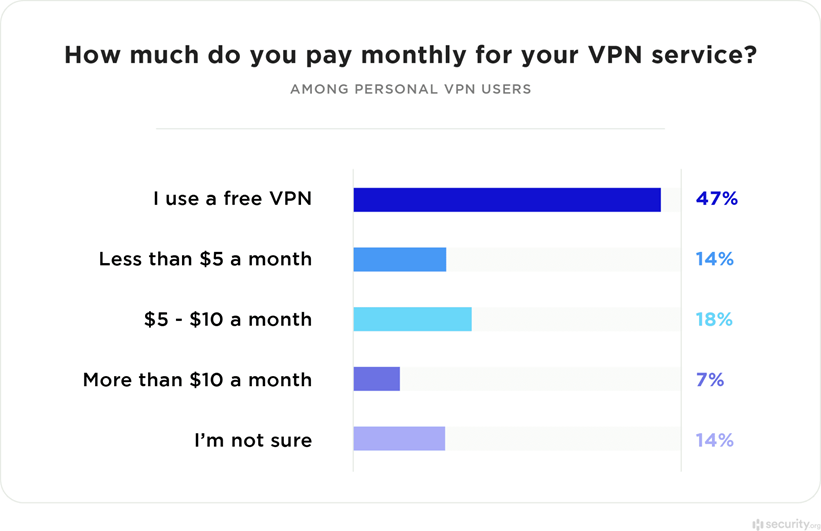Author: Anton Tkachev, CEO of Browsec VPN service
Several situations force individual internet users to protect themselves online and keep their digital activities incognito. It could be bypassing restrictions or censorship, protecting personal identity or location, and other personal motives.
A practical solution to enhance online security is to utilize a Virtual Private Network (VPN). This technology creates a secure, encrypted "tunnel" connection between a device and a VPN server, accessed through an open network. It allows users to connect as if their device is directly connected to the VPN server.
Businesses use VPN technology to connect remote employees to corporate networks or to create a secure network between geographically distributed offices. In the consumer sector, individuals use VPNs to protect personal information and activities from external intrusion.
Today, more than 10 million people from almost every country use our VPN services monthly, and the company's gross revenue exceeds $3 million. The current virtual private network market in the consumer sector suggests that demand for VPN services from private users will continue to grow.
Why the VPN services market will continue to grow
Global Industry Analysts predict that the global VPN, estimated at $32.2 billion in 2020, will reach $87.1 billion by 2027, growing at an average annual rate of 15.3%. China, the world's second-largest economy, is projected to have a market size of up to $12.9 billion by 2027, with a very high growth rate of up to 17.4% annually. In contrast, Germany's growth rate is expected to be 12.1%.

According to estimates from analysts at Absolute Reports, Europe currently accounts for the largest share of VPN consumption, at around 40%, followed by North America at 35%.
There are many reasons for using VPN services. For businesses and public institutions, they are a necessary tool for information security. They protect sensitive information such as corporate, banking, government, and customer personal data. For private users, VPNs are used to access restricted internet resources and maintain users' security.
Demand for VPN technology is seeing significant growth, particularly in the user VPN services sector. While there is also growth in the corporate sector, it is less dynamic.
At Browsec, we specialize in commercial solutions for the consumer market, and I would like to highlight several trends in this area. One trend is the growing interest in VPN services due to increased computer literacy and awareness among users. A new generation is growing up with a familiar understanding of internet technologies. More and more people are aware of the potential uses of technology, which is the primary driver of demand for VPNs.
For example, according to Security.org, 88% of U.S. residents are now familiar with VPN use, compared to only 72% in 2020. This demonstrates the increasing awareness and use of VPN services among the general population.

The second trend is the global increase in workforce migration. Before the COVID-19 pandemic, this trend was moderate, with only a small percentage of people moving to live and work in another country. However, during the pandemic, people realized they could work remotely from almost anywhere in the world. As a result, more and more people are now working remotely and need a VPN to access their usual home services.
Another interesting fact, according to Security.org, is that the share of Generation X (people aged 42-57) among U.S. VPN users has decreased over the year, falling from 33% in 2021 to 24% in 2022. We attribute this to the fact that after the COVID-19 pandemic, which forced many to move to a "work from home" economy, the need for mass remote access to corporate networks using VPNs declined as many workers returned to their offices and corporate secure Internet connections.

Another trend of increasing demand for VPNs for individual countries is related to increased online censorship. For example, in countries such as Russia, China, Iran, and others, VPN use is restricted or even banned.
In other countries that monitor their citizens and visit foreigners, the authorities hope people will not use VPNs when traveling. However, in practice, this is not always convenient or possible. For example, it is impossible to access YouTube from mainland China.
Various online resources also restrict access from abroad, often encountered by those living abroad. The desire to circumvent restrictions may be relevant for familiar user services, including streaming services, which practice specific content targeting depending on geography.
For example, Netflix offers various movies and TV shows in different countries, catering to local preferences and languages. To access the selection of Netflix content from abroad, a VPN connection with a link to the IP address of the country where you are located is often required. According to Security.org, 41% of U.S. residents currently use VPN services, highlighting the need the need for them to stream content freely across different countries, as well as for other purposes.
Another key benefit of using a VPN is the protection it provides against spoofing internet traffic and fraudsters. For instance, there are free Wi-Fi providers that insert ads into pages when you try to access an HTTP website without encryption. Many ISPs, including home internet providers, intercept HTTP traffic and insert their advertising banners. But with VPN solutions used on both mobile devices and desktop computers, users can mitigate these threats.
Accordingly, when using a public hotspot, such as in a subway, hotel, or café, there is a risk of intercepting unprotected traffic for the purpose of page spoofing and phishing. VPN solutions can effectively protect against these types of scams.
A recent survey conducted by Security.org found that the top five reasons for using a VPN among U.S. users include maintaining general privacy (59%), enhancing general security (57%), hiding online activity from search engines, providers, and other third parties (44%), accessing streaming content that may be restricted in certain geographic locations (37%), and protecting personal information when using public Wi-Fi networks (28%). These results indicate a continued need for VPN services as threats to online security and privacy persist.
How VPN services make money
VPN services generate revenue through a variety of methods. They can be broadly categorized into three segments: subscription-based, freemium, and completely free services.
Subscription-based VPN services require a subscription fee for access to all features and services. Freemium VPN services offer a basic level of functionality for free but charge for advanced or premium features. Lastly, completely free VPN services offer services without charging a fee but may generate revenue through advertising or by selling user analytics.
The VPN services market is highly competitive, with many providers offering attractive terms of use, such as free or low-cost services. A survey by Security.org revealed that 47% of personal VPN users do not pay for their services, and only 7% pay more than $10 per month. This coexistence of free and paid services reflects VPN users' diverse needs and preferences.

Like other free products, free VPNs must find ways to generate revenue. However, these monetization methods may not always be obvious to the user. The most common method is displaying ads.
Some free VPNs, particularly those from untested publishers, may also use a user's device as an output node to send requests. These devices are then aggregated into a network of resident proxies, which can be sold to interested parties.
Another covert monetization method is tracking users' online activities and selling this information to data brokers.
When developing the monetization model for Browsec, we aimed to provide access to the service to the widest possible audience without resorting to controversial methods. We chose the freemium model as the most appropriate for our service. Due to this, Browsec has grown its user base to over 10 million users and has become a profitable service.
How VPN services compete
The VPN market is highly competitive, with market leaders investing heavily in promotion and new VPN applications constantly emerging. Additionally, as VPNs become increasingly necessary for personal and business use, more companies are incorporating VPN solutions into their products.
For example, VPN features are now being integrated into browsers such as Opera and Firefox. Also, Apple has added the Private Relay feature to iOS, leveraging the trend.
Cloudflare, a company known for developing CDNs for the B2B market, has also entered the consumer VPN market with its 1.1.1.1 service.
To compete in this crowded market, our strategy is to provide a simple, user-friendly product that offers a specialized feature that we excel at.
In pursuit of market share, many VPN providers are adding more and more features to their products.
Introducing a large number of features helps to get small new audience segments. But at the same time, this leads to an overcomplexity of the product and usability problems for the main audience.
We are very careful about the balance between functionality and ease of use of our product. As a result, we received a large number of positive reviews from customers who switched to using our product precisely because of its clarity and convenience.
The future of the VPN services market
The consumer VPN market is expected to grow significantly in the coming years. With the increasing use of the internet for personal and professional use, the need for secure and private online browsing is becoming more important. The increasing number of cyber attacks, data breaches, and government surveillance has increased the demand for VPN services, as they provide a secure and encrypted connection to the internet. Additionally, with the rising popularity of streaming services and online gaming, consumers are looking for VPN services that can bypass geo-restrictions and access content from different regions.
The future of the consumer VPN market is likely to see more innovative and advanced features being offered. As more people work remotely and access the internet from different devices, VPN providers will have to offer solutions that cater to these needs. The introduction of 5G technology and the increasing adoption of the internet of things (IoT) will also create new opportunities for VPN providers to offer secure connections for these devices. Additionally, the rise in popularity of blockchain technology will also see the emergence of VPN services that are built on blockchain networks, providing an added layer of security and privacy.
© 2026 ScienceTimes.com All rights reserved. Do not reproduce without permission. The window to the world of Science Times.











